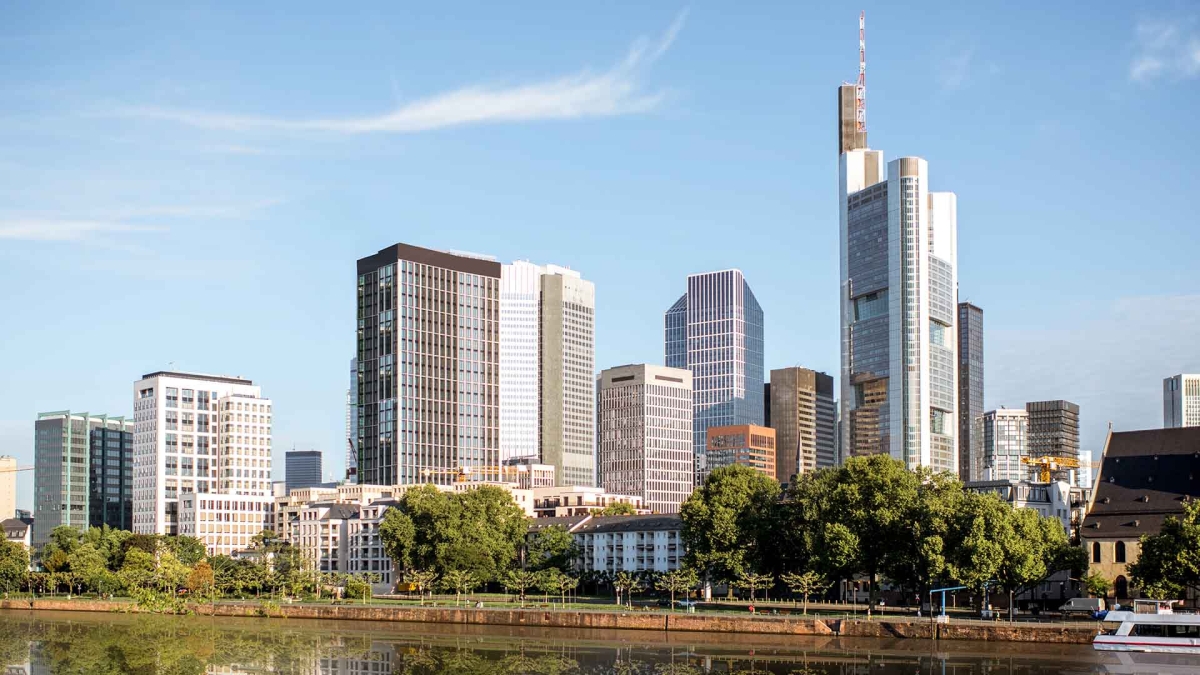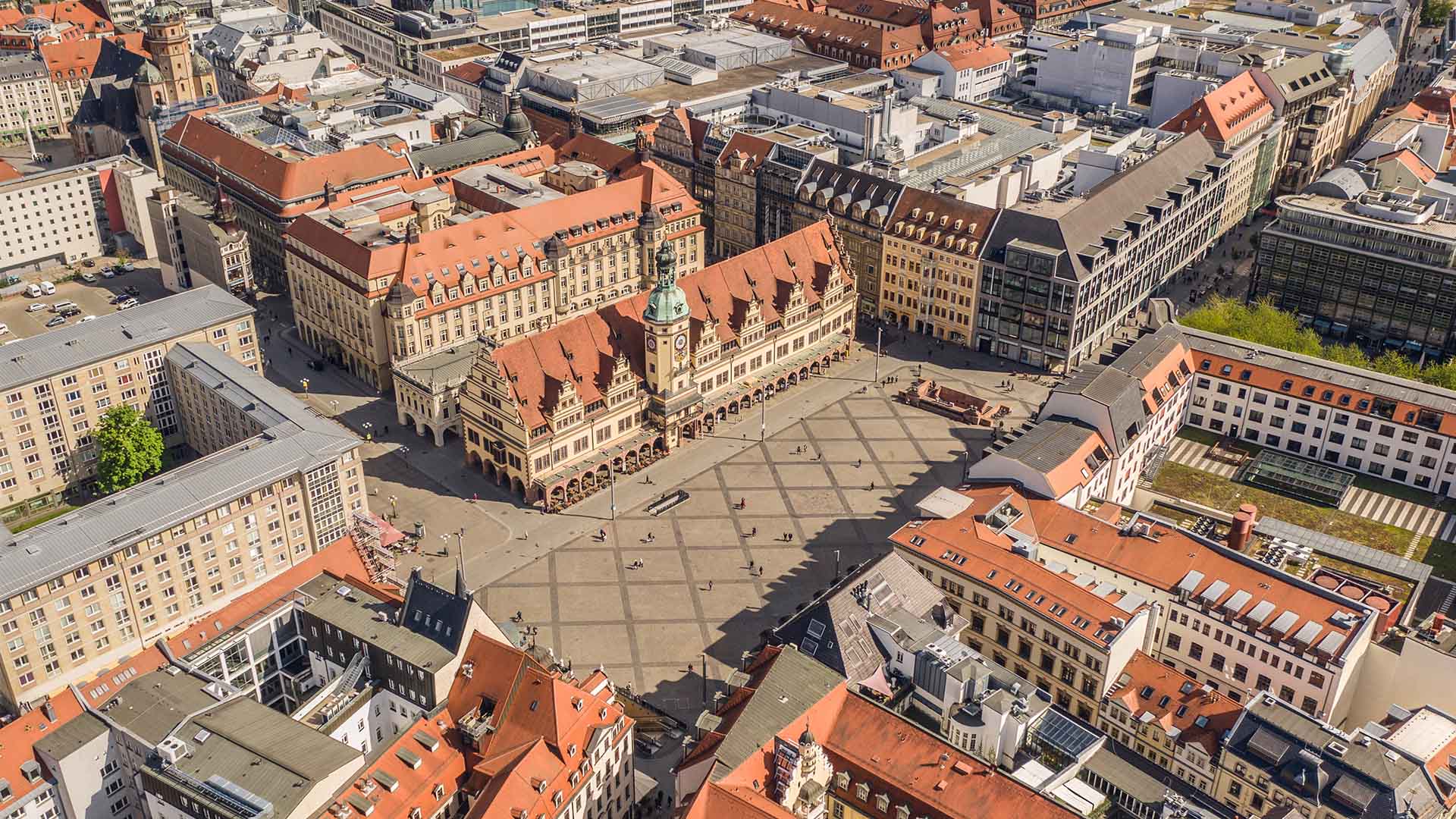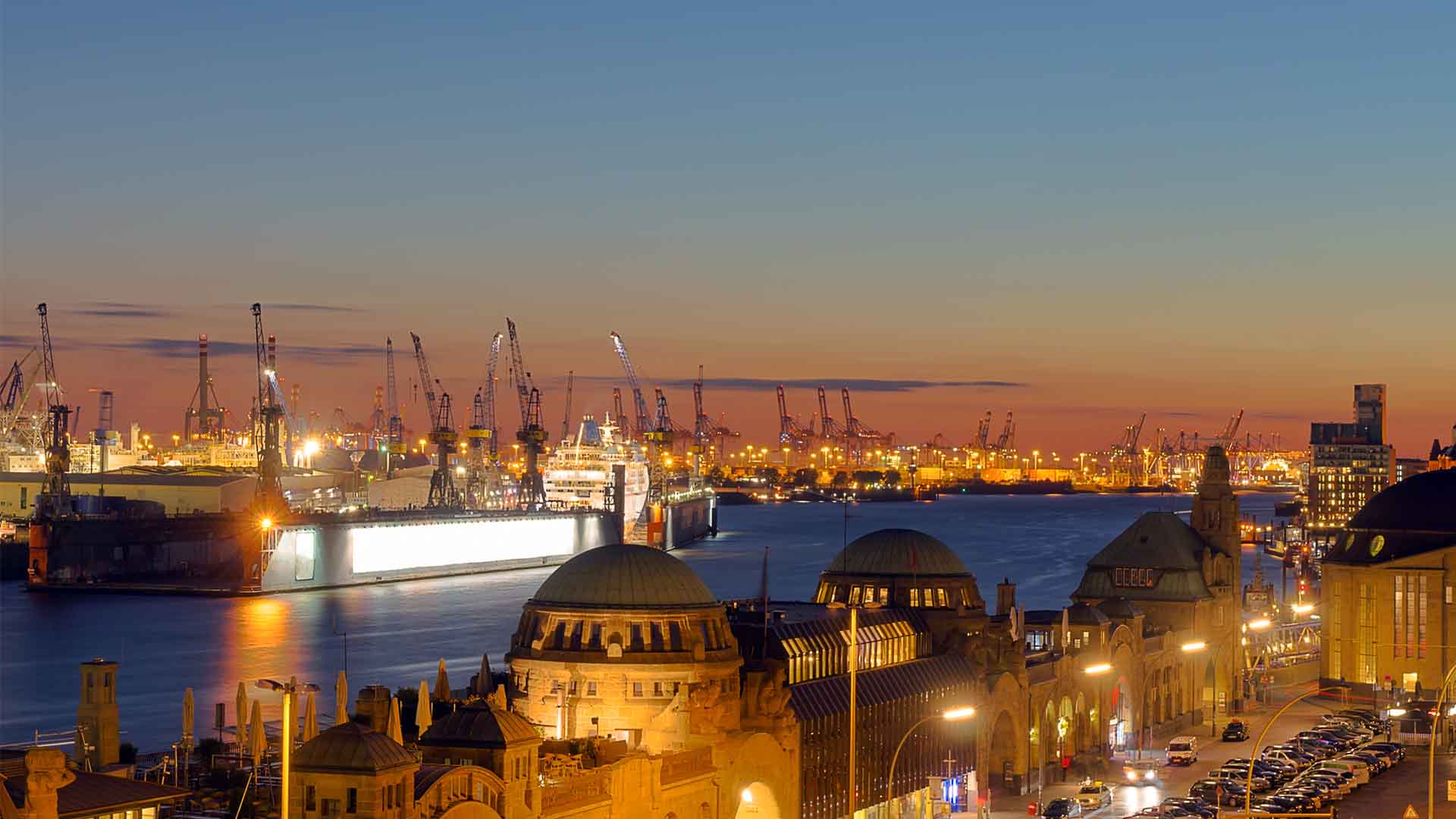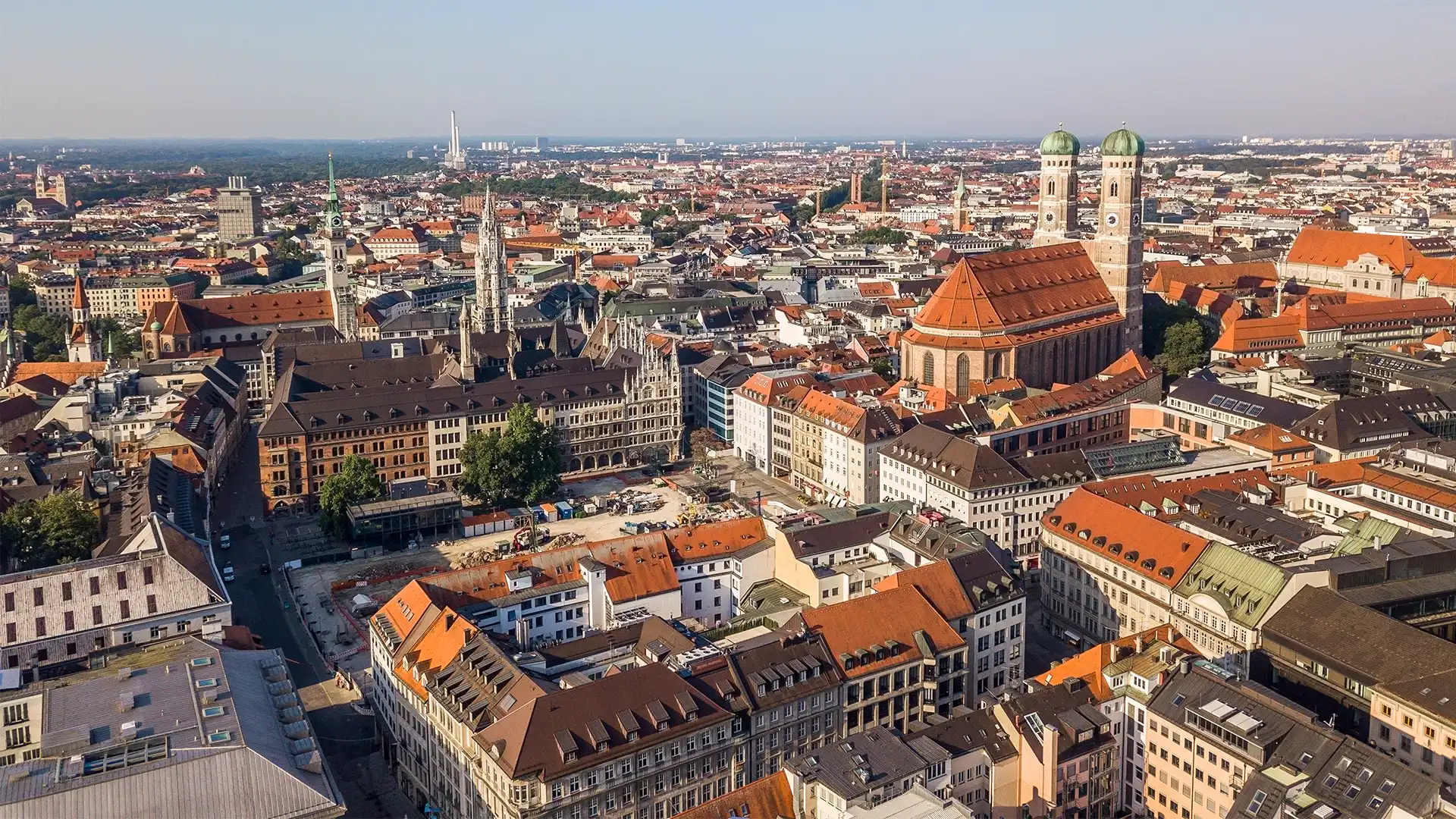Average Salary in Frankfurt: A Comprehensive Guide to Salaries in Frankfurt
- Average Salary in Frankfurt: A Comprehensive Guide to Salaries in Frankfurt
- Overview: Salaries in Frankfurt
- Average Salary by Education Level in Frankfurt
- Average Salary in Frankfurt by Job Title for Expats
- Frankfurt vs. Berlin: Salary Comparison for Job Seekers
- Detailed Cost of Living in Frankfurt vs. Other Major Cities
- Profiles of Frankfurt’s Key Industries and In-Demand Roles
- Career Growth Potential and Promotion Paths by Industry
- Historical Salary Trends in Frankfurt
- Living in Frankfurt: Lifestyle Choices and Budget Impact
- Focus on Frankfurt’s Startup Scene and Salaries
- FAQ: Salaries in Frankfurt
- How Does The Minimum Wage In Frankfurt Compare To The Cost Of Living?
- How Much Salary Is Enough To Live In Frankfurt?
- Is Frankfurt Expensive To Live In?
- Is Frankfurt Worth Living In?
- How Much To Rent In Frankfurt?
- Is 60,000 Euros A Good Salary In Frankfurt?
- Which German City Is Cheapest To Live?
- Is 80k A Good Salary In Frankfurt?
- Is Frankfurt Or Munich Cheaper?
- Is Frankfurt Richer Than Berlin?
- What Are The Cons Of Frankfurt?
- What Is The Richest Part Of Frankfurt?
- Average Salaries Across The German Cities
- Average Salary in Leipzig
- Average Salary in Hamburg
- Average Salary in Stuttgart
- Average Salary in Munich
Frankfurt am Main, often called Germany’s financial capital, is renowned for its high salaries and a job market brimming with opportunities across various sectors. As a global hub for finance, technology, and more, Frankfurt attracts professionals worldwide seeking lucrative careers.
This guide explores average salaries in Frankfurt by industry, education, job title, and compares costs with other cities, providing essential insights backed by official data.
Overview: Salaries in Frankfurt
According to the Federal Statistical Office of Germany (Statistisches Bundesamt), the average gross salary in Frankfurt in recent years stands around €65,000 per year. After deducting taxes and social contributions, the net income is approximately €41,000 annually. Compared to the national average of €54,000, Frankfurt’s salaries are 10-15% higher due to its status as a financial center and high cost of living.
- Gross Average Salary: €65,000 per year
- Net Average Salary: €41,000 per year
Germany’s progressive tax system affects take-home pay, with rates based on factors such as income level, marital status, and dependents.
Average Salary by Education Level in Frankfurt
The Federal Employment Agency (Bundesagentur für Arbeit) indicates that education level significantly influences salary. Here’s a breakdown of how earnings vary by education level:
| Education Level | Annual Gross Salary (€) |
|---|---|
| High School Diploma | 30,000 – 40,000 |
| Bachelor’s Degree | 45,000 – 55,000 |
| Master’s Degree | 55,000 – 75,000 |
| Ph.D. | 70,000 – 100,000 |
Advanced degrees are especially valued in Frankfurt’s finance, engineering, and IT sectors. For example, a professional with a Ph.D. in engineering can expect to earn well above the average salary, depending on their experience and role.
Average Salary in Frankfurt by Job Title for Expats
Frankfurt’s job market offers diverse salaries, with averages around €65,000 before tax and €41,000 after. Competitive fields include finance, IT, and engineering, where roles vary from €45,000 to €150,000 annually.
Based on data from Statista and the Federal Employment Agency, here’s an overview of popular expat roles and salaries:
| Profession | Annual Gross Salary (€) | Monthly Net Salary (€) |
|---|---|---|
| Investment Banker | 90,000 – 120,000 | 5,500 – 7,000 |
| Software Engineer | 65,000 – 85,000 | 4,000 – 5,200 |
| IT Project Manager | 80,000 – 100,000 | 5,000 – 6,200 |
| Mechanical Engineer | 58,000 – 70,000 | 3,800 – 4,500 |
| Data Scientist | 63,000 – 85,000 | 4,200 – 5,500 |
| Marketing Specialist | 55,000 – 70,000 | 3,500 – 4,600 |
| Pharmacist | 55,000 – 75,000 | 3,600 – 4,800 |
| Dentist | 80,000 – 100,000 | 5,200 – 6,400 |
With a strong presence of international finance and tech companies, Frankfurt offers highly competitive salaries, particularly in investment banking and IT.
Frankfurt vs. Berlin: Salary Comparison for Job Seekers
Frankfurt
- IT/Tech: €3,500 – €4,200 net per month
- Finance: €3,800 – €4,500 net per month
- Marketing: €3,200 – €3,800 net per month
- Engineering: €3,600 – €4,300 net per month
- Healthcare: €3,300 – €3,900 net per month
Berlin
- IT/Tech: €3,200 – €3,900 net per month
- Finance: €3,500 – €4,200 net per month
- Marketing: €3,000 – €3,600 net per month
- Engineering: €3,400 – €4,000 net per month
- Healthcare: €3,100 – €3,700 net per month
Verdict: While Frankfurt typically offers higher salaries than Berlin, its cost of living, especially for housing, is also higher, which may offset the income advantage.
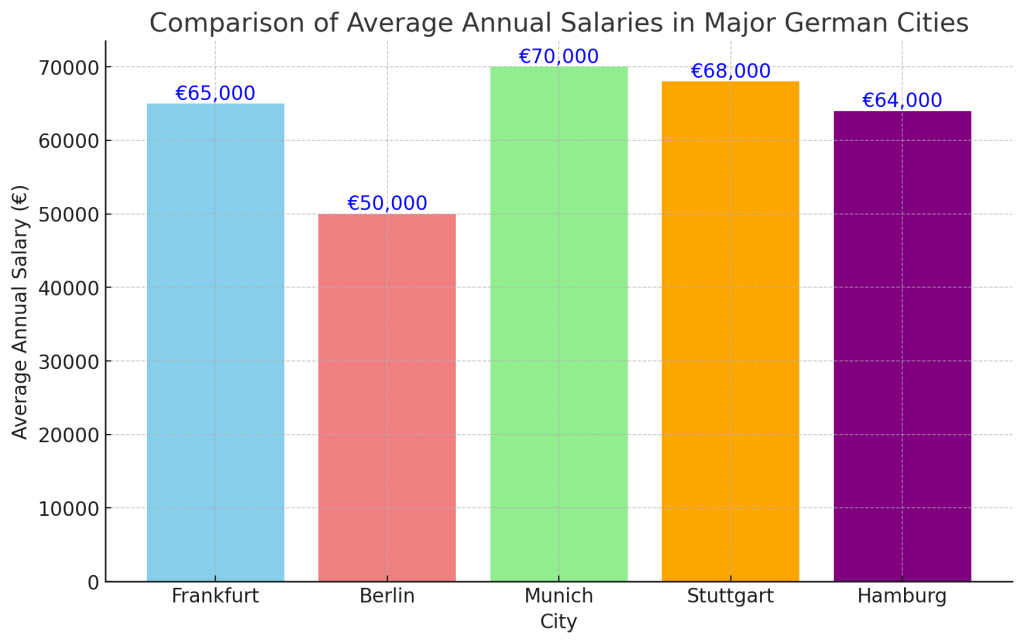
Detailed Cost of Living in Frankfurt vs. Other Major Cities
Using data from Numbeo and the Federal Statistical Office, here’s a cost of living comparison for Frankfurt and other major cities:
| City | 1-Bedroom Rent (City Center) | Public Transport Pass | Meal at Mid-Range Restaurant |
|---|---|---|---|
| Frankfurt | €1,300 – €1,700 | €90 | €15 – €25 |
| Berlin | €1,100 – €1,500 | €86 | €10 – €20 |
| Munich | €1,400 – €1,900 | €55 | €15 – €30 |
| Hamburg | €1,000 – €1,300 | €89 | €12 – €20 |
| Amsterdam | €1,500 – €2,000 | €97 | €15 – €25 |
| London | €1,800 – €2,500 | €150 | €20 – €35 |
Frankfurt’s rental costs are among the highest in Germany but still lower than cities like London. The relatively high cost of living is primarily due to housing prices in central areas.
Profiles of Frankfurt’s Key Industries and In-Demand Roles
Official sources like the Federal Employment Agency highlight Frankfurt’s main industries:
- Finance: Investment bankers, financial analysts, and asset managers earn salaries between €70,000 and €150,000.
- IT: Software developers, IT project managers, and data scientists earn €55,000 – €100,000, with high demand for experienced professionals.
- Healthcare: Doctors, pharmacists, and specialized nurses earn between €40,000 and €100,000.
- Engineering and Manufacturing: Engineers and skilled technical workers in automotive and chemical production have salaries from €50,000 to €90,000.
The emerging fintech and green technology sectors further boost Frankfurt’s economy, with competitive salaries and a high demand for skilled labor.
Career Growth Potential and Promotion Paths by Industry
Career advancement in Frankfurt’s finance, IT, and engineering industries is attractive for skilled professionals, as highlighted by data from the German Institute for Economic Research (DIW Berlin):
- Finance: Entry-level salaries start at €45,000 – €55,000, while senior executives earn over €150,000.
- IT: Entry-level software engineers can progress to IT project managers or technical leads, with salaries from €55,000 to over €100,000.
- Healthcare: Specialist nurses and healthcare professionals can advance, increasing their salaries from €40,000 to €70,000 or more.
- Engineering: Starting at around €50,000, engineers in senior roles or managerial positions can earn up to €90,000.
Historical Salary Trends in Frankfurt
According to the Federal Statistical Office, salary growth in Frankfurt has been steady over the last decade. Major factors influencing salaries include Brexit, which increased demand for finance professionals, and the expansion of the tech sector.
| Year | Average Gross Salary (€) |
|---|---|
| 2015 | 55,000 |
| 2018 | 60,000 |
| 2021 | 63,000 |
| 2024 | 65,000 |
Living in Frankfurt: Lifestyle Choices and Budget Impact
Different lifestyles can impact monthly expenses in Frankfurt. Here’s how various choices affect budgets:
- Neighborhood Choices:
- Upscale (e.g., Westend): Rent for a one-bedroom is around €1,500.
- Affordable (e.g., Bornheim): Rent ranges from €900 – €1,200 for a one-bedroom.
- Transportation Options:
- Public Transport: A monthly pass costs around €90.
- Car Ownership: Additional costs include fuel, parking, and insurance, making it more costly than public transit.
- Dining Out vs. Cooking at Home:
- Dining out frequently can increase monthly expenses by around €300, while cooking at home is generally more budget-friendly.
Focus on Frankfurt’s Startup Scene and Salaries
Frankfurt’s startup ecosystem, particularly in the fintech sector, is rapidly growing and attracting professionals interested in innovative, fast-paced work environments. Supported by Germany Trade and Invest (GTAI) and local incubators, the city is evolving as a key player in fintech and tech startups. Here’s an overview of salary trends within Frankfurt’s startup landscape:
| Company Size | Average Annual Salary (€) |
|---|---|
| Small Startups | €35,000 – €55,000 |
| Medium Startups | €55,000 – €75,000 |
| Established Startups (e.g., Series B or later) | €75,000 – €100,000 |
Opportunities and Benefits in the Startup Sector
Startups in Frankfurt often provide non-traditional benefits that appeal to young professionals and tech-savvy expats. These perks, along with relatively competitive salaries, are major attractions for workers interested in flexibility and growth:
- Flexible Working Hours: Many startups offer flexible schedules or remote work options.
- Equity and Stock Options: To attract top talent, some startups provide shares or stock options, particularly those in later stages of funding.
- Skill Development and Fast Career Growth: Startup roles often allow employees to work across multiple functions, fostering diverse skill development and rapid career progression.
- Innovative Work Culture: Startup environments in Frankfurt tend to promote creativity, collaboration, and innovation, which appeals to younger professionals and those new to the city.
Demand in Frankfurt’s Fintech Sector
The fintech industry has grown significantly in Frankfurt, a traditional finance hub, and draws talent globally. Roles in this field—especially for data scientists, software developers, and product managers—tend to command higher-than-average startup salaries, with gross annual earnings ranging from €60,000 to €90,000. With Frankfurt positioned as a bridge between traditional finance and digital innovation, fintech startups provide promising opportunities and have continued to expand, even amidst market fluctuations.
Key Takeaway
Frankfurt’s startup scene, particularly in fintech and tech, offers competitive salaries, skill-building opportunities, and unique perks that appeal to professionals looking for a modern work environment. Though salaries in startups may begin lower than in large corporations, the potential for fast growth, flexibility, and additional benefits make this sector an appealing choice for ambitious professionals seeking a thriving, innovative environment in Germany’s financial capital.
FAQ: Salaries in Frankfurt
How Does The Minimum Wage In Frankfurt Compare To The Cost Of Living?
While the minimum wage provides a baseline income, it falls short for comfortably covering Frankfurt’s high living expenses. A single person typically needs between €1,800 and €2,500 monthly for rent, utilities, food, and transport. For couples, monthly expenses often range from €2,500 to €3,500, making a higher income essential for comfort.
How Much Salary Is Enough To Live In Frankfurt?
To live comfortably in Frankfurt, a monthly salary of €3,000 to €4,000 before taxes is generally sufficient. This income covers rent, utilities, and daily expenses, though higher salaries may provide more financial freedom in this costly city.
Is Frankfurt Expensive To Live In?
Yes, Frankfurt ranks among Germany’s more expensive cities, particularly for rent and dining. However, higher average salaries often help offset these costs, providing residents with a balanced standard of living.
Is Frankfurt Worth Living In?
Absolutely, Frankfurt offers excellent job prospects, high quality of life, diverse cultural experiences, and efficient public transit. Its international environment and financial opportunities make it a desirable place to live.
How Much To Rent In Frankfurt?
In Frankfurt, rental prices vary, with a one-bedroom apartment in the city center typically costing between €1,300 and €1,800 per month. Costs may be lower in surrounding neighborhoods.
Is 60,000 Euros A Good Salary In Frankfurt?
Yes, €60,000 annually is a solid salary in Frankfurt, covering rent, utilities, and other expenses comfortably. This income allows for a good lifestyle, balancing living costs with some savings potential.
Which German City Is Cheapest To Live?
Leipzig is among Germany’s most affordable cities, offering lower housing costs and overall expenses while maintaining a good quality of life, making it ideal for budget-conscious residents.
Is 80k A Good Salary In Frankfurt?
Yes, an €80,000 annual salary is excellent for Frankfurt, providing a high standard of living, with ample room for savings and discretionary spending. It’s well above average for the city.
Is Frankfurt Or Munich Cheaper?
Overall, Frankfurt is slightly more affordable than Munich, especially for rent and general living expenses. Both cities are costly, but Munich’s expenses are typically higher.
Is Frankfurt Richer Than Berlin?
Yes, Frankfurt has a higher GDP per capita and serves as Germany’s financial hub, making it economically wealthier than Berlin. The city’s financial institutions drive its prosperity.
What Are The Cons Of Frankfurt?
Drawbacks include the high cost of living, limited affordable housing, and a fast-paced lifestyle. Some may find Frankfurt less culturally vibrant than Berlin, though it offers other benefits.
What Is The Richest Part Of Frankfurt?
The Westend district is Frankfurt’s wealthiest area, featuring luxurious apartments, high-end shopping, and prestigious residents, making it one of the city’s most exclusive neighborhoods.
How informative was this article?
Click on a star to rate it!
We are sorry that this post was not useful for you!
Let us improve this post!
What is missing in the article?



